James Paget Hospital: Modular wards could be blueprint for NHS
- Published
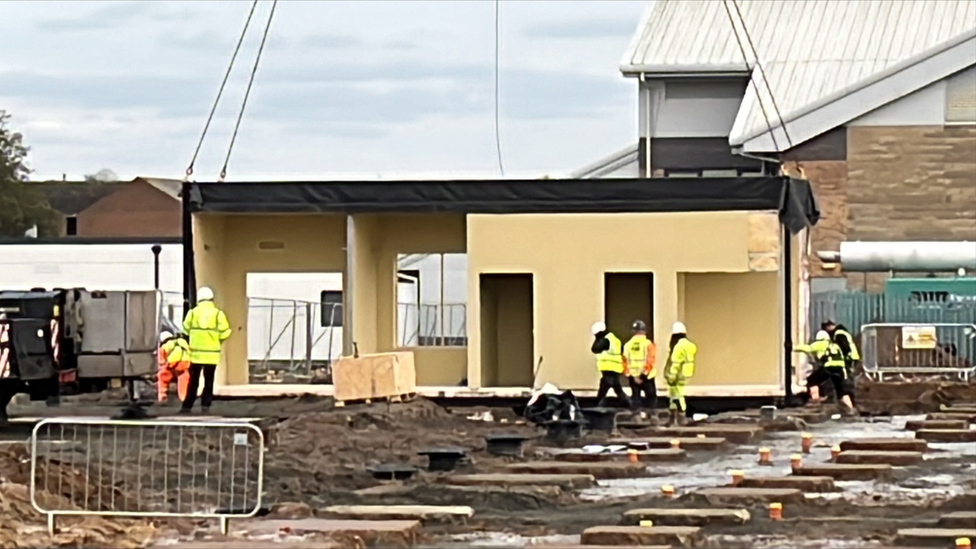
Part of the modular unit ward which is being assembled in a factory for the James Paget Hospital
The assembly of a "modular" hospital ward could be a blueprint for how all NHS buildings are built in the future, the government said.
A new 28-bed ward for the James Paget University Hospital in Gorleston, Norfolk, is being built in a factory.
Health Secretary Stephen Barclay said there was "an urgent need" to change how new NHS buildings were built.
It meant moving away from the bespoke and opting for standardised designs instead - to keep costs down, he said.
The James Paget, and the West Suffolk Hospital in Bury St Edmunds, have been given funding for the new modular units.
Paul Morris, chief nurse at the James Paget said the unit was designed by staff and clinicians with contractors Health Spaces.
About 20 of the rooms will have their own bathrooms, a request from patient feedback, said Mr Morris.
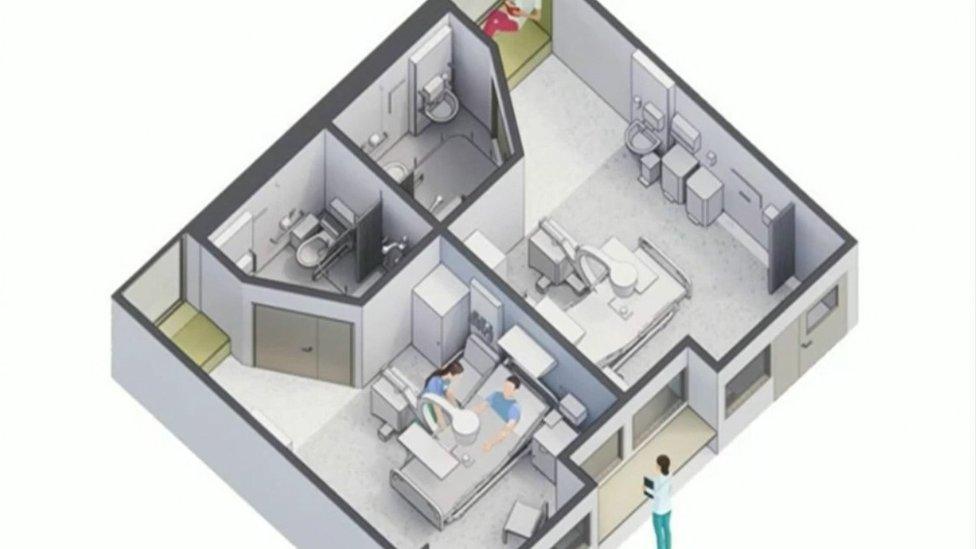
Artist's impression of the new en-suite hospital rooms
Described as a "concept ward", the unit includes side rooms with windows and a space for visitors to stay.
"We also have a small four-bedded bay which staggers the offset of our beds, which enables us to improve our infection control and improve privacy and dignity for patients," said Mr Morris.
The unit would enable the trust to find out more about the environment, in terms of outcomes for patients, infection control and impact on staff, added Mr Morris.
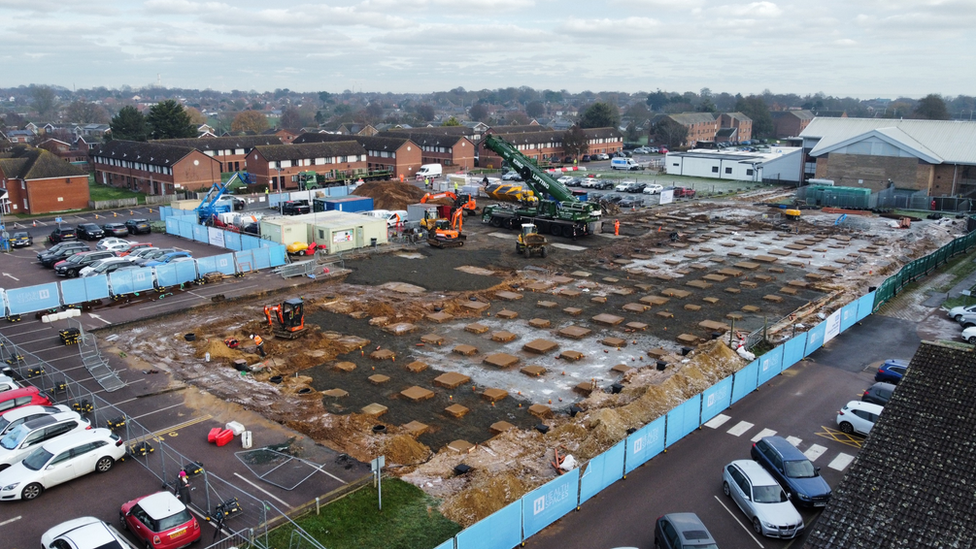
Building the modules off-site allowed the infrastructure to be put in place simultaneously
The present James Paget was built using a modular style, and took five years to complete, beginning in 1976.
The new concept ward, expected to be completed by April at a cost of £15m, would be retained after the new main hospital is constructed.
The James Paget was selected in 2020 to be one of the 40 new hospitals built across England by 2030, announced by former PM, external Boris Johnson.
A date for work to start has not been given.

Senior nurse, Paul Morris, said the new unit was "a great opportunity" to work on improved care and systems for staff
Concerns had been raised about the government backing a building that was not being built to last, but Mr Morris said today's pre-fabricated units had come a long way.
"We're in a completely different era to what we were then," said Mr Morris.
"With modern day building, construction methods, technology, we know the lifespan of this building is predicted to last between 40 and 50 years."

Stuart Rawson, contract manager with Health Spaces, says the build will last longer due to modern methods used
Stuart Rawson, contract manager with Health Spaces, agreed advances in technology meant the construction would be of better quality.
He also said building the modules in a factory meant the main infrastructure work, drainage and foundations, could be carried out at the same time.
"We can save approximately 50% off the build time off-site," he said.
"So where a project would normally take two years, we can probably construct that in 12 months, it's a lot faster."
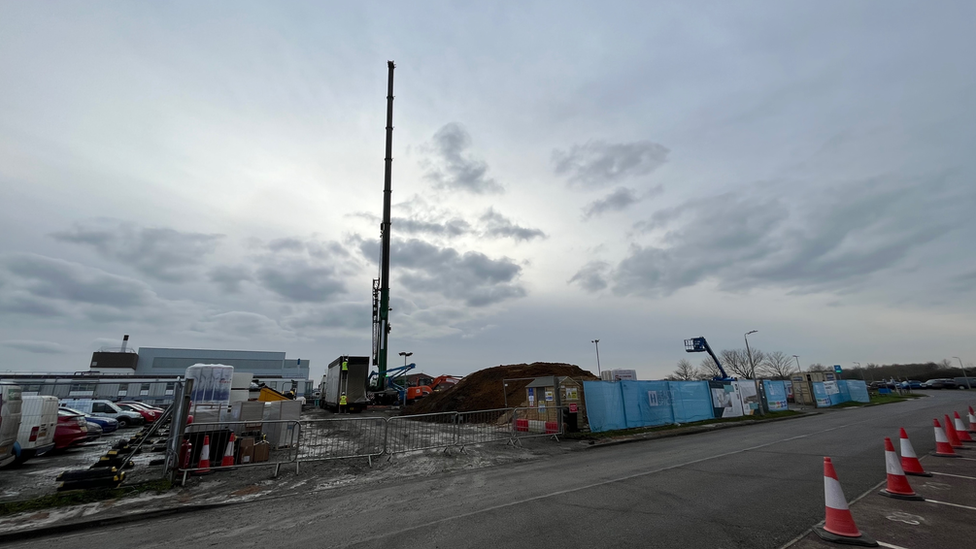
The 41 modules averaging 24.5 tonne each will be placed using a 300 tonne mobile crane with a 48m (157ft) boom

Analysis by Nikki Fox, Health Correspondent, BBC Look East
This is a so-called concept ward, a blueprint for the future for how the government building programme might work.
The government says its new hospitals programme is the biggest in a generation.
It says out of the last 10 hospitals that were built before it, nine were over budget and over schedule for completion.
So it wants all hospitals to be built in a similar way to save time and money.
The government also doesn't want to return to PFI schemes, where hospitals effectively rent a building at huge costs.
It says it will still build 40 hospitals by 2030, but the problem is it has been delayed.
For each month that building work doesn't start, inflation pushes steel prices up.
The Princess Alexandra Hospital in Harlow, Essex, has been delayed by three years.
In that time, steel prices have risen by £250m on that project alone, prompting some to wonder if it would have been cheaper for some hospitals to be allowed to get started and go it alone on the design.

Find BBC News: East of England on Facebook, external, Instagram, external and Twitter, external. If you have a story suggestion please email eastofenglandnews@bbc.co.uk, external
Related topics
- Published22 November 2022
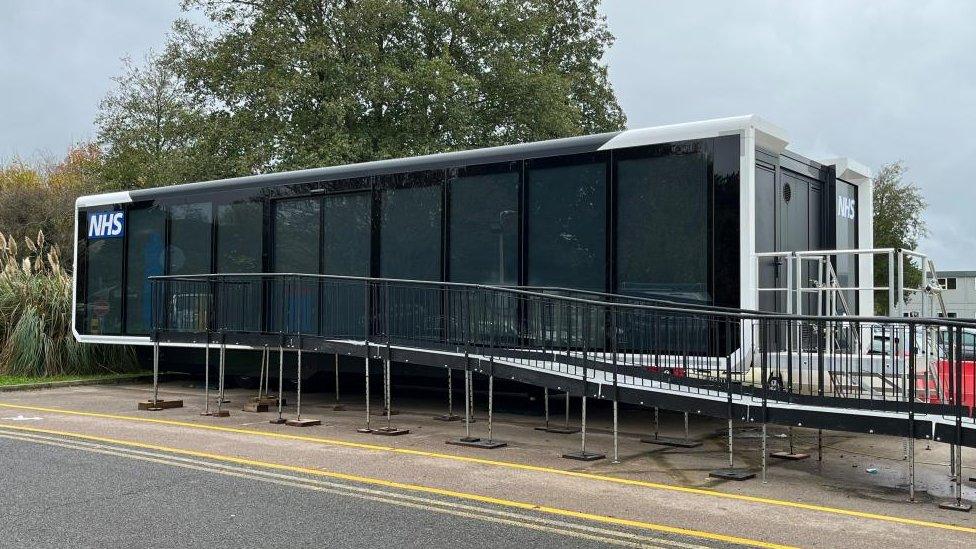
- Published2 November 2022
